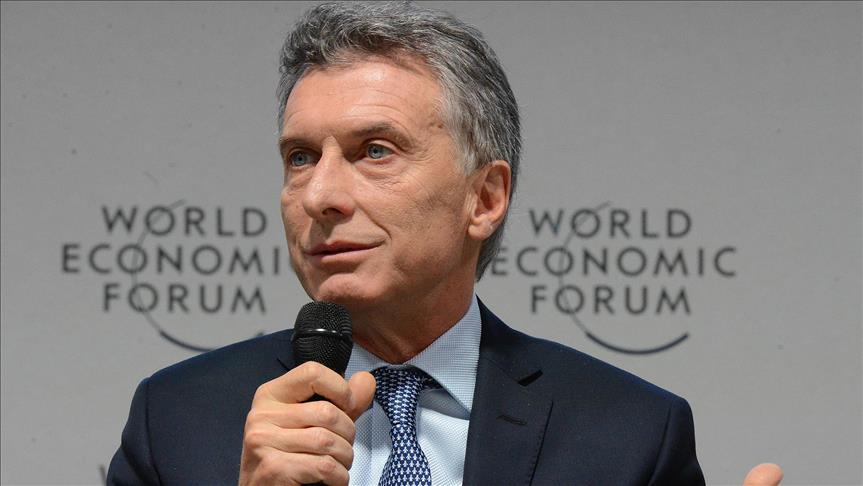
Argentina
By Charles Newbery
BUENOS AIRES
The Senate here on Thursday approved a plan to pay off defaulted bonds, paving the way for the country to return to borrowing on global capital markets after a 15-year lockout.
The bill was approved in a 54-16 vote following more than 13 hours of debate.
The legislation now goes to President Mauricio Macri to be signed into law, allowing his administration to issue up to $12.5 billion in bonds to settle remaining debts from a 2001 default on $100 billion.
It will make it possible for Argentina to borrow on global markets for the first time since the default, helping to ease 30 percent inflation and pull the economy out of a four-year stagnation, according to the government.
Argentina defaulted on the debt during a 2001-2002 economic crisis and has been unable to borrow abroad. The country has had to rely on a limited amount of local financing and printing pesos -- pushing inflation into double digits starting in 2007.
While the previous governments of Nestor Kirchner and then his wife, Cristina Fernandez de Kirchner, restructured 93 percent of the bonds in 2005 and 2010 at 30 cents on the dollar, remaining creditors held out for a better deal.
A handful of the bondholders, including a hedge fund run by American billionaire Paul Singer, won a lawsuit for full repayment in U.S. courts, which have jurisdiction because the bonds were issued under American law. Fernandez de Kirchner refused to pay more than the 93 percent, pushing the country to a second default in 2014 and leaving the job to Macri, who won the presidency at the end of 2015.
“I consider it essential to resolve this issue quickly and intelligently thinking,” Sen. Laura Rodriguez Machado, head of the ruling party block, said during the debate.
“We understand that we are facing a court judgment. This is not a restructuring.” Liliana Fellner, an opposition senator, said she voted to approve the bill to protect jobs in her province of Jujuy.
Macri had warned that if the country cannot settle the debts and start borrowing abroad again, there would have to be layoffs and other adjustments that could slow a recovery from four years of economic stagnation.
With approval of the bill, however, Macri said that Argentina would start to recover as soon as the second half of this year, as foreign investment starts to flow back into the country.
“It’s not true that we have several options” for settling the debt, ruling party Sen. Angel Rozas said. “We have only one, which is to settle or settle.”
The Macri government has agreed to pay 75 cents on the dollar to Singer’s hedge fund and other so-called holdouts. And of the debt, about $4.7 billion must be paid in cash by April 14, according to the U.S. court-negotiated agreement.
To cover this and other payments to the holdouts, which total $12 billion, the government plans to promote the sale of $12.5 billion in bonds in a road show in Europe and the U.S., starting April 11, according to the finance ministry.
Anadolu Agency website contains only a portion of the news stories offered to subscribers in the AA News Broadcasting System (HAS), and in summarized form. Please contact us for subscription options.

